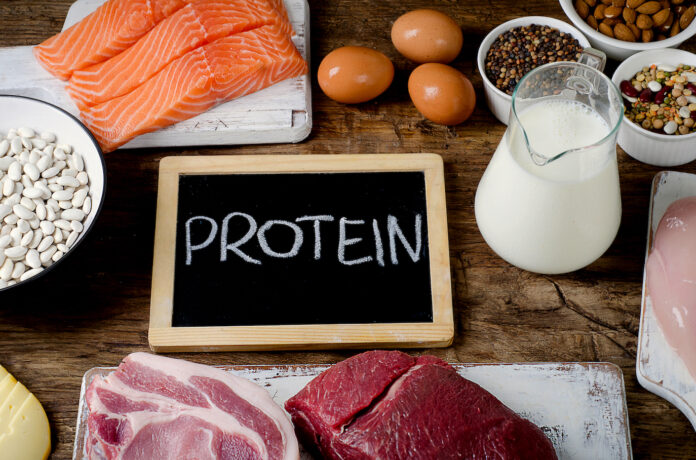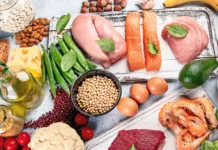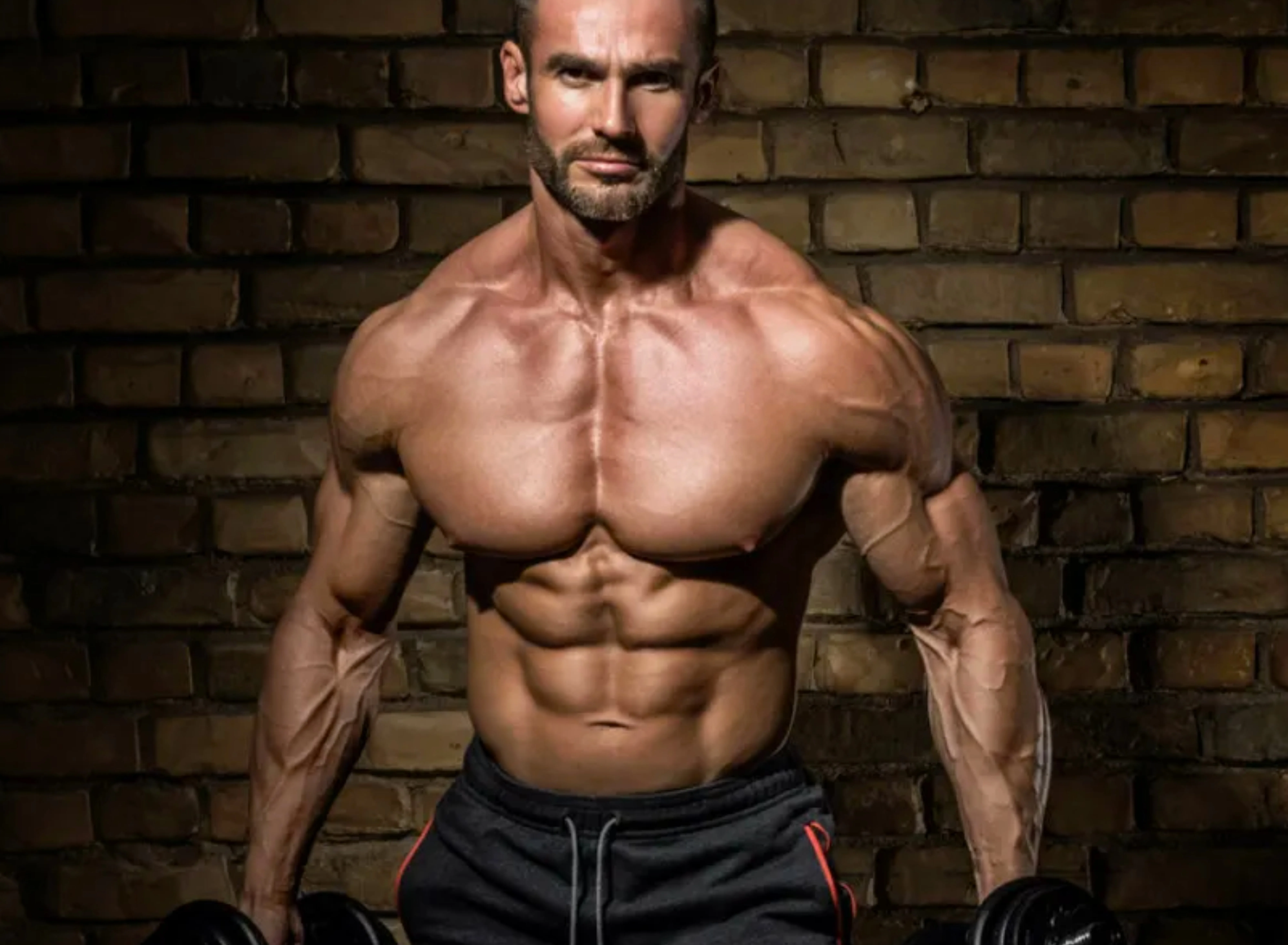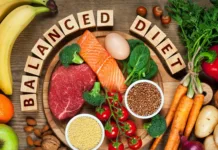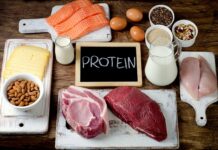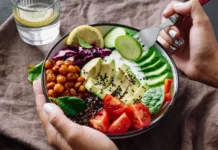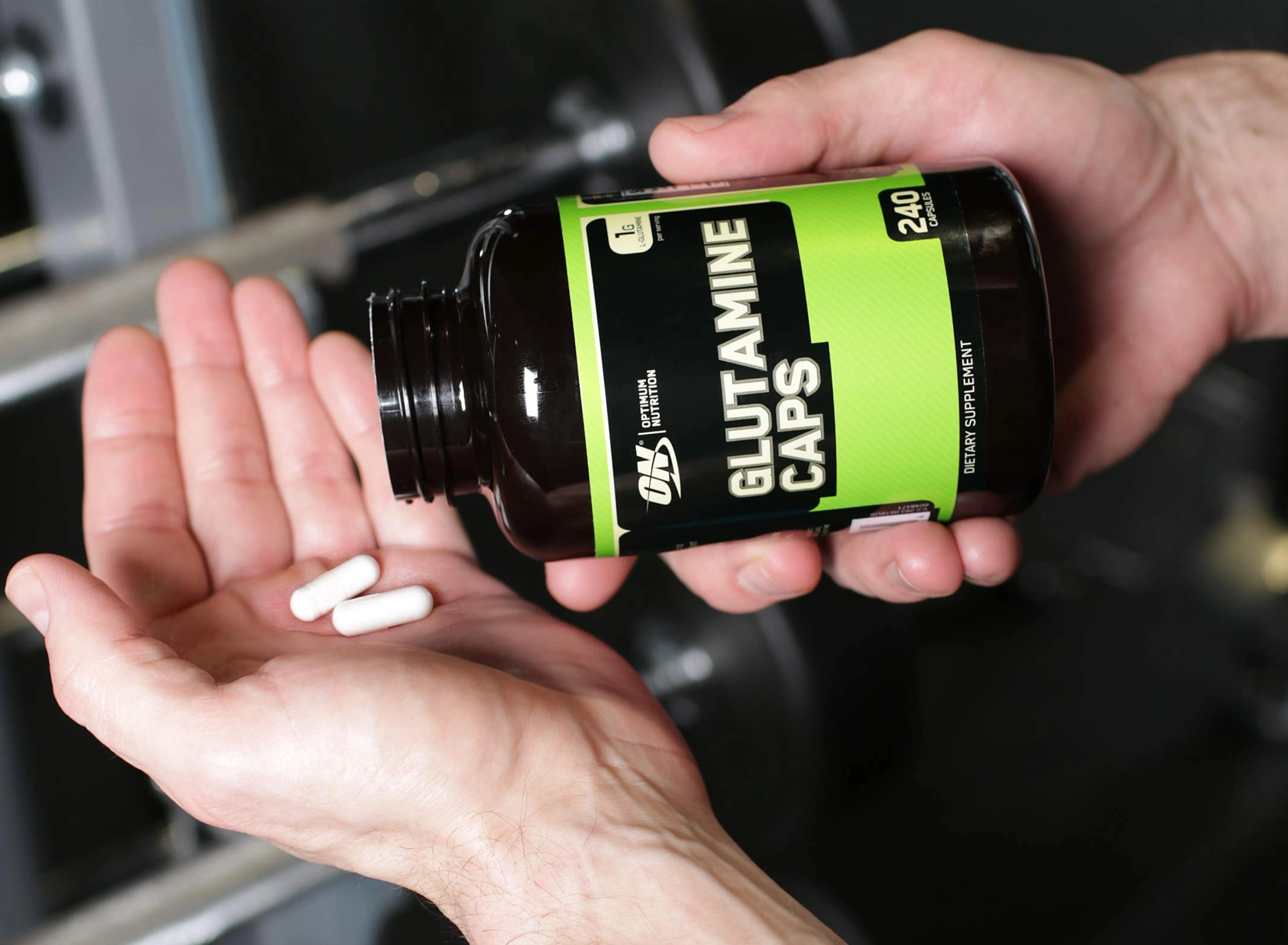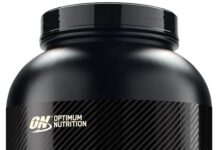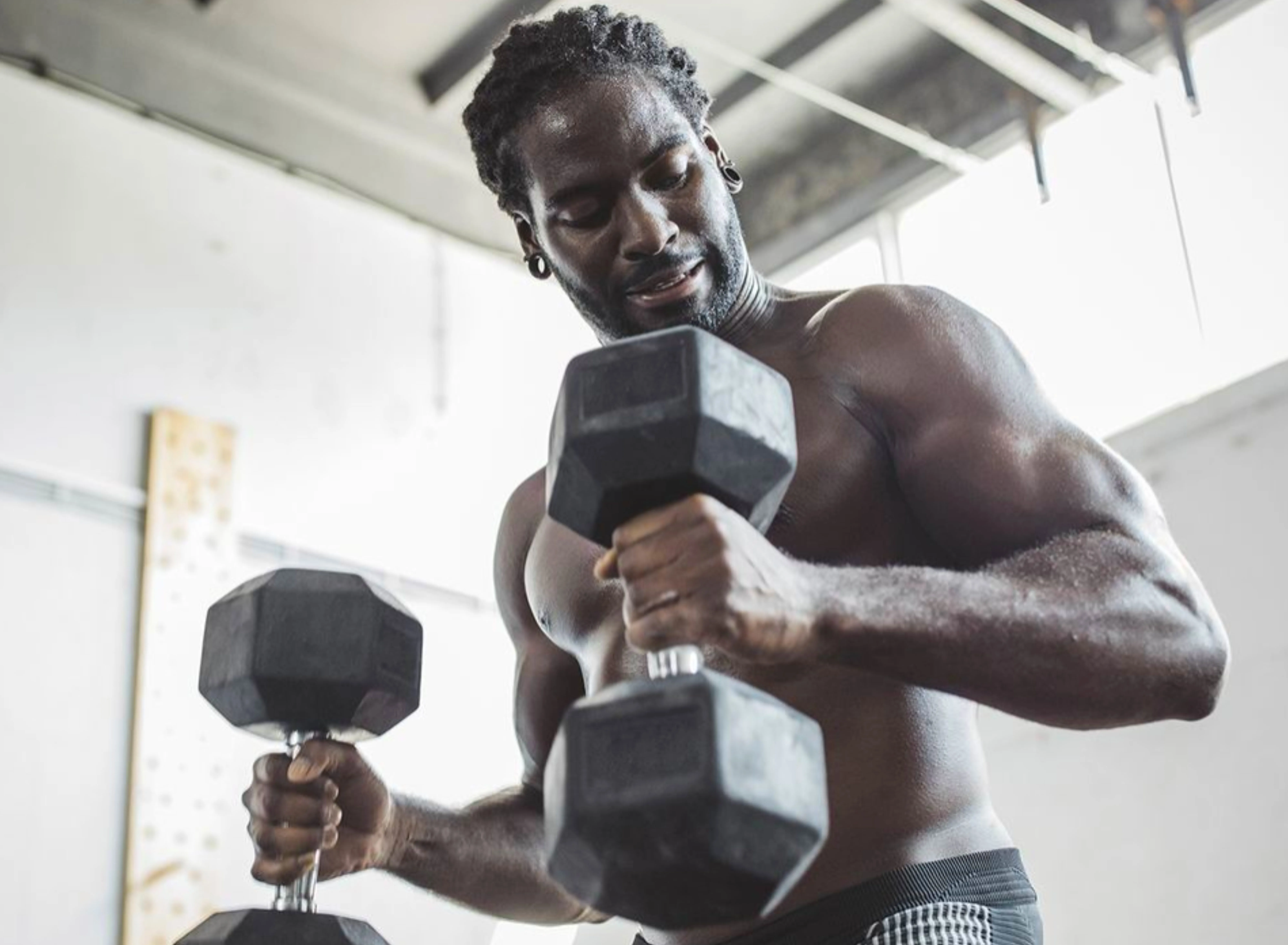When trying to build muscle, gain mass and physical strength, it is particularly important to regularly consume much-needed macronutrients like high-quality proteins, complex carbohydrates, and polyunsaturated fatty acids.
Only a regular supply of protein can permanently boost protein synthesis for muscle building, gain physical strength and keep the amino acid concentration in the blood consistently very high.
In addition to macronutrients, you also need to regularly consume vitamins and minerals.
High Protein Diet: Essential muscle building component
When building muscle mass, physical strength, a high-protein diet is needed to support the body after exercise and during regeneration.
Proteins basically consist of various essential and semi-essential amino acids like leucine, valine, and isoleucine.
We recommend a combination of animal and plant sources of protein, carbs, and fats. Suitable natural foods include lean meats and fish, low-fat dairy products, eggs, legumes, and soya.
Both nutrition and physical activity are critical if you want to gain lean muscle.
To get started, it’s essential to challenge your body through physical activity. However, without proper nutritional support, your progress will stall.
High-protein foods are very important for gaining muscle, but carbohydrates and fats are also necessary sources of energy.
If your goal is to gain lean muscle, you should focus on exercising regularly and eating more calories each day from muscle-building foods.
In the world of fitness and bodybuilding, one macronutrient reigns supreme—protein. It doesn’t come as a surprise, because proteins are the building blocks of life, and of course, muscle. Every single cell in our body contains protein, and it’s needed to continue to repair cells and create new ones.
When we exercise, our muscles form tiny tears which help the muscle grow stronger as it heals itself. Due to their repairing nature, muscles need protein to come in to assist with mending fibers, which may help speed the process and impact recovery time and build muscle faster. Many fitness enthusiasts that focus on weight lifting typically consume higher protein because they want to add more muscle mass.
The current Recommended Dietary Allowance (RDA) for protein sits at 0.8 grams per kilogram of body weight (or roughly 0.4 grams per pound of body weight). This is considered the “minimum” and can vary depending on lifestyle factors, age, and sex. The question then arises, is more protein better or unnecessary when it comes to muscle strength and gain?
New Research Shows That You Don’t Need a High Protein Diet
A recent 2021 randomized control trial published in the American Journal of Physiology-Endocrinology and Metabolism had 50 overweight middle-aged men and women start resistance training for 10 weeks while being assigned either moderate protein intake (0.8 – 1.0 g/kg a day) or high protein intake (1.6 – 1.8 g/kg a day). The goal was to determine if high protein intake would increase resistance training-induced changes in muscle strength and body composition compared to moderate protein intake.
Participants in the moderate intake group ate three ounces of beef (16 grams of protein) immediately after exercise while the high protein group ate six ounces (32 grams of protein). In addition to that, participants were provided beef isolate protein powder to drink one to two hours before bed. Those in the moderate protein group drank 15 grams worth of protein and the high group consumed 30 grams. When it came to exercise, all participants did whole-body resistance training 3 days per week.
After the 10 weeks were up, participants had their muscle strength, performance, and body composition compared to their baselines (pre-exercise and protein). The results found that muscle strength and performance were not different between moderate and high protein groups. Total body mass for those in the moderate protein group increased by 1.3 kg and by 1.5 kg in the high protein group, which isn’t a significant difference.
To sum things up, high protein intake is not linked to increased strength and bigger muscles. With this study, there are some cautions with researchers writing, “our results should be cautiously interpreted for situations of protein intake below current ‘aging’ recommendations of 1.2 g/kg/day or in the context of plant-based eating patterns.”
When you take in more protein than your body needs, it gets stored as fat, just as other excess calories from other macros, and you excrete the unneeded amino acids in urine.
Change Your Diet: Choose Plant-Based Protein to Boost Muscle Mass
It’s not uncommon to hear the word “protein” and instantly think of animal sources. When vegan eating became increasingly popular in the early 2010s, the question of “where do you get your protein?!” tended to make its rounds. Nowadays, with more individuals following a plant-based diet, it’s no shock that there are many protein-rich plant sources to easily meet your needs.
In fact, consuming plant-based foods may be the key to increasing muscle function. Another recent study published in The Journal of Nutrition found that dietary nitrate intake from vegetables may be effective in boosting lower-limb muscle strength and physical function in both men and women. Those that consumed higher amounts of nitrate from veggies (around 91 mg/day) had 2.6 kg stronger knee extension strength and a 0.24-second faster 8-ft-timed-up-and-go (a performance-based measure of functional mobility).
Those that are interested in swapping out animal protein for plant proteins may not only increase muscle function but add a few years into their life as well. A 2016 study published in JAMA Internal Medicine determined that animal protein was associated with mortality while plant protein was inversely related (meaning the higher the plant protein intake, the lower your risk of mortality). Cardiovascular disease was one of the main causes of mortality in those that consumed animal proteins, likely due to other components such as sodium and fat. On the other hand, plant-based protein lowered blood pressure, reduced LDL (“bad”) cholesterol levels, improved insulin sensitivity, and lowered the incidence of cardiovascular disease and type 2 diabetes.
Even the slightest adjustment from protein to plant protein can be beneficial. The same study found that a 3 percent energy from plant protein in place of eggs was associated with a decrease in cancer mortality by 21 percent. To put that into calories, a 3 percent energy substitution would be 60 calories if you eat a 2,000 calorie diet.
Takeaway tip: You don’t need a high protein diet to build muscle, but if you want to be healthy, choose plant-based protein and only eat the recommended daily amount.
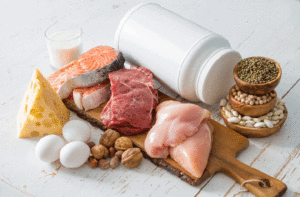
For more news and updates, follow IFBNewsfeed.Org on Facebook, Twitter, and Instagram.
